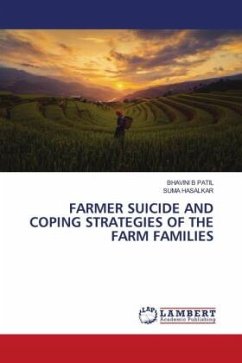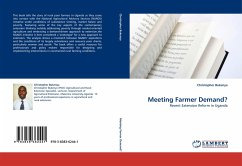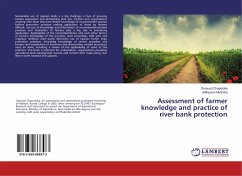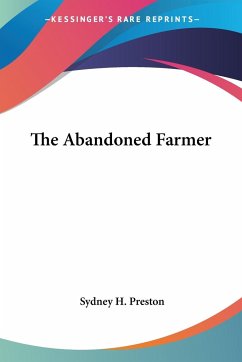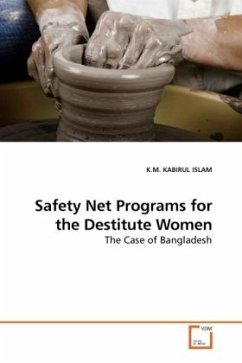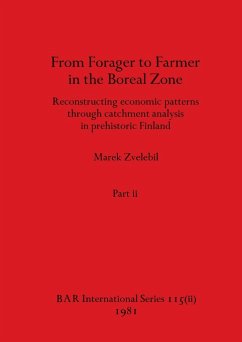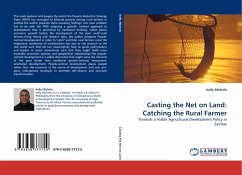
Casting the Net on Land: Catching the Rural Farmer
Towards a Viable Agricultural Development Policy in Zambia
Versandkostenfrei!
Versandfertig in 6-10 Tagen
39,99 €
inkl. MwSt.

PAYBACK Punkte
20 °P sammeln!
This work explores and gauges the extent the Poverty Reduction Strategy Paper (PRSP) has managed to alleviate poverty among rural farmers in Zambia.The author presents some revealing findings; one main problem has to do with the PRSP adopting a growth- centred approach to development that is promoted by neoliberal thinking, which places economic growth before the development of the poor small-scale farmers.Using theory and research data, the author proposes People-centred development in order to "catch" and help rural farmers resist the hegemonic tendencies of neoliberalism but also to link re...
This work explores and gauges the extent the Poverty Reduction Strategy Paper (PRSP) has managed to alleviate poverty among rural farmers in Zambia.The author presents some revealing findings; one main problem has to do with the PRSP adopting a growth- centred approach to development that is promoted by neoliberal thinking, which places economic growth before the development of the poor small-scale farmers.Using theory and research data, the author proposes People-centred development in order to "catch" and help rural farmers resist the hegemonic tendencies of neoliberalism but also to link research to the real world such that we can meaningfully help to guide policymakers and leaders in social movements such that they might build more equitable economic systems and geopolitical relationships.The people-centred development is a viable alternative that might serve the interests of the poor better than neoliberal growth-centred, investment-orientated development. People-centred development places people rather than the economy at the centre of development and uses pro-poor, endogenous strategies to promote self-reliance and structure transformation.



